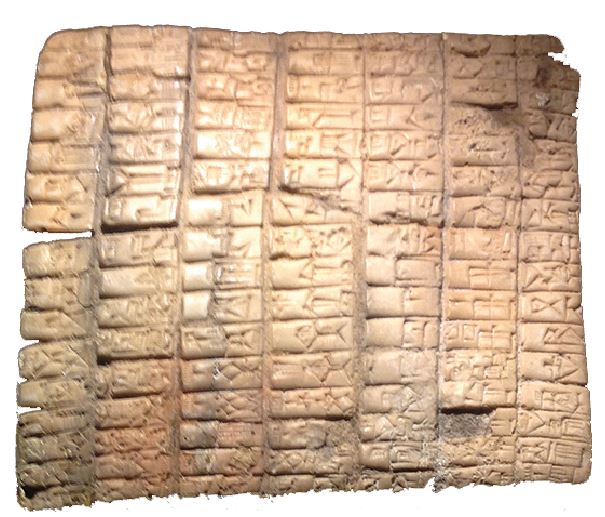BETWEEN THE Syrian city of Aleppo and the Mediterranean coast lies a huge mound which is the remains of the ancient city of Ebla. Excavations have revealed that it was once a metropolis at the centre of a sophisticated civilisation. Archaeologists believe that the city was ransacked and rebuilt twice before it was finally destroyed by invaders around 1600bc.
In 1975 an extraordinary discovery was made in the ruins of one of the city’s palaces: an archive of clay tablets, lying where they fell when the wooden shelves they were stacked on collapsed as the palace burnt to the ground. Around 1,800 of the tablets were intact, they were still in order, and there were even clay reference tags showing how the archive was organised.

There were financial records and economic documents, religious and literary texts and school books. They were all made of clay, because they were made long before the invention of paper. It’s believed that the palace was destroyed around 2250bc.
Bible scholars were excited about the discovery of the Ebla Tablets, because it showed that writing is much older than was previously thought.
The first five books of the Bible—Genesis, Exodus, Leviticus, Numbers and Deuteronomy—are often known as the Books of Moses. Moses was the man who led the nation of Israel out of Egypt to the Promised Land. Exodus to Deuteronomy deal with the nation’s journey and the law God gave them which Moses was told to write down (for example Exodus 34:27). It is traditionally held that he wrote these four books, and that he also wrote (or collated from earlier writings) the book of Genesis.
The problem was, Moses lived around 1600bc and until recently it was believed that writing had not been invented by that time. So the Books of Moses must have been written by other people long after the events they describe.
But the Ebla Tablets are dated around the time of Abraham, over 500 years before Moses. We now know that Moses, with his upbringing as a prince in the court of Egypt, would have been a fluent writer. Again the Bible is proved right and its critics have to eat their words!
Doug Potts

